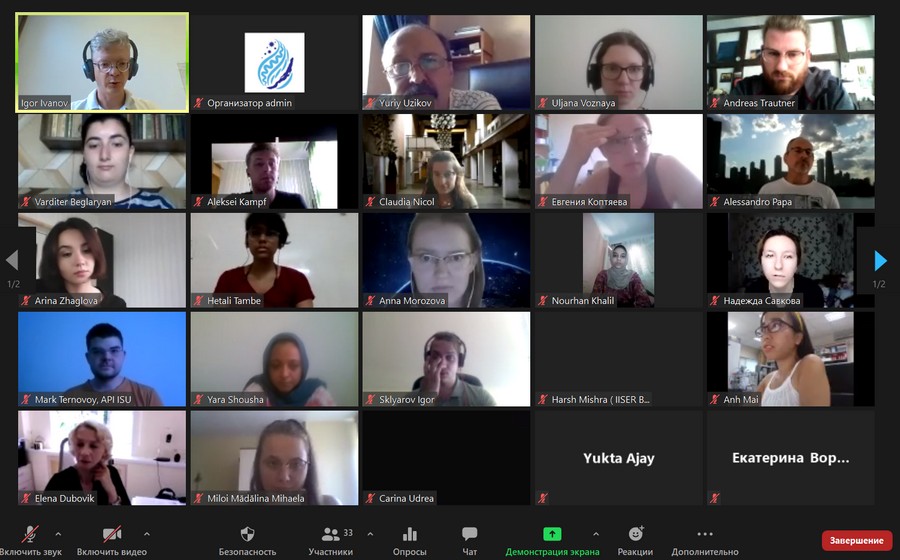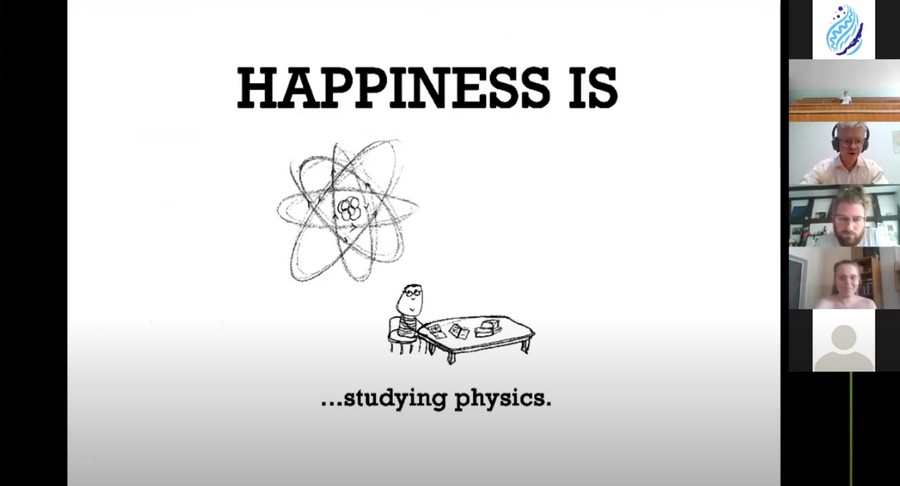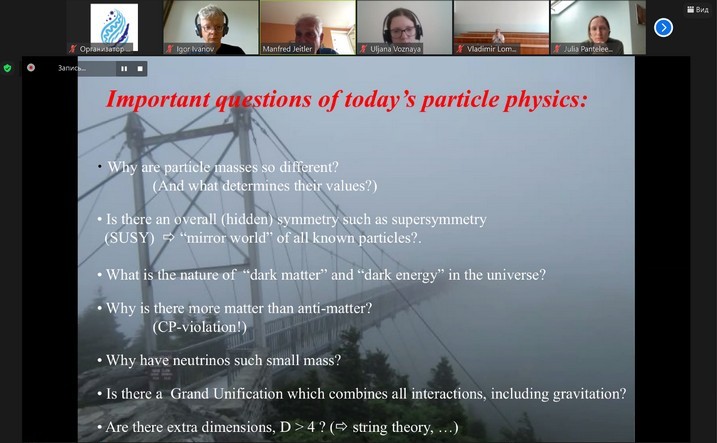21st JINR-ISU Baikal Summer School on Physics of Elementary Particles and Astrophysics Is Over
Last Saturday, the 21st Baikal Summer School on Physics of Elementary Particles and Astrophysics was completed. It was held online from 12 to 17 July. The School was organized by the Dzhelepov Laboratory of Nuclear Problems (JINR) and Irkutsk State University. This year, about 40 listeners were involved, 13 of them were foreign participants from India, Egypt, Ukraine, Armenia, Romania and Brazil. The students attended lectures on particle physics and astrophysical neutrinos with great interest, discussed some topical problems under the guidance of supervisors, took part in problem-solving sessions, and presented their research.
Igor Ivanov, a co-chair of the Organizing Committee, shared his impressions with us,

“Organizing any event at this uneasy time, one should consider a great many of “in-spite-of”. Preparing the School, we could not foresee an epidemiologic situation in Russia and in the world. We were not sure whether our guest lecturers could give their talks in such uncertainty conditions and with such difference in time between Europe and Irkutsk. We did not know whether we would succeed in attracting foreign listeners — there are some other online schools on particle physics and astrophysics this summer in Europe, — and whether we would be able to keep attendees’ interest till the end of the School. What is more, we scheduled some offline sessions at ISU for Irkutian students who traditionally make up a core part of participants, and a detailed programme was not clearly outlined in this case as well.
 Igor Ivanov and the School listeners
Igor Ivanov and the School listeners
Now, after six productive School workdays, we can claim that the School was held with dispatch in spite of all obstacles and uncertainties. The lecturers from Germany, Italy, Austria and Spain elaborated wonderful lecture series and sets of follow-up tasks. Many thanks to them for this work and their striving to support the students from distant countries. The lecture slides are freely available on the School website, and all those interested can dive into the lecture material. The participants from different countries listened to the lectures very carefully, did not feel shy to switch on their cameras, ask questions, introduce their presentations, and nobody ran away even during the last days of the School. We sincerely appreciate such responsibility, the resolution to work hard. What surprised us greatly was to see a lot of girls among the School listeners. Even more than guys. Such an interest in science is a noteworthy phenomenon. Finally, the lectures were streamed live at ISU, and there was an extra option, morning hands-on sessions.
 A slide from the presentation by Madalina Mihaela Miloi | DLNP, JINR
A slide from the presentation by Madalina Mihaela Miloi | DLNP, JINR
Everything ran smoothly from the technical point of view thanks to the exceptional support of the DLNP Group of Scientific Communication. Moving ahead, we noticed several omissions, clearly realized how we could improve education and communication — in short, we learned to host such events from our own experience. We all surely hope that the next JINR-ISU Baikal Summer School will be held offline on the shore of Lake Baikal. Anyway, we have got some experience in hosting online meetings. The School was a success. The tradition is alive, and continuity is maintained. The JINR-ISU Baikal Summer School series stays up to the mark and continues evolving in spite of all obstacles.”
 A slide from the presentation by Manfred Jeitler
A slide from the presentation by Manfred Jeitler
Читайте также:
Как прошел первый день 21-й Байкальской летней школы

